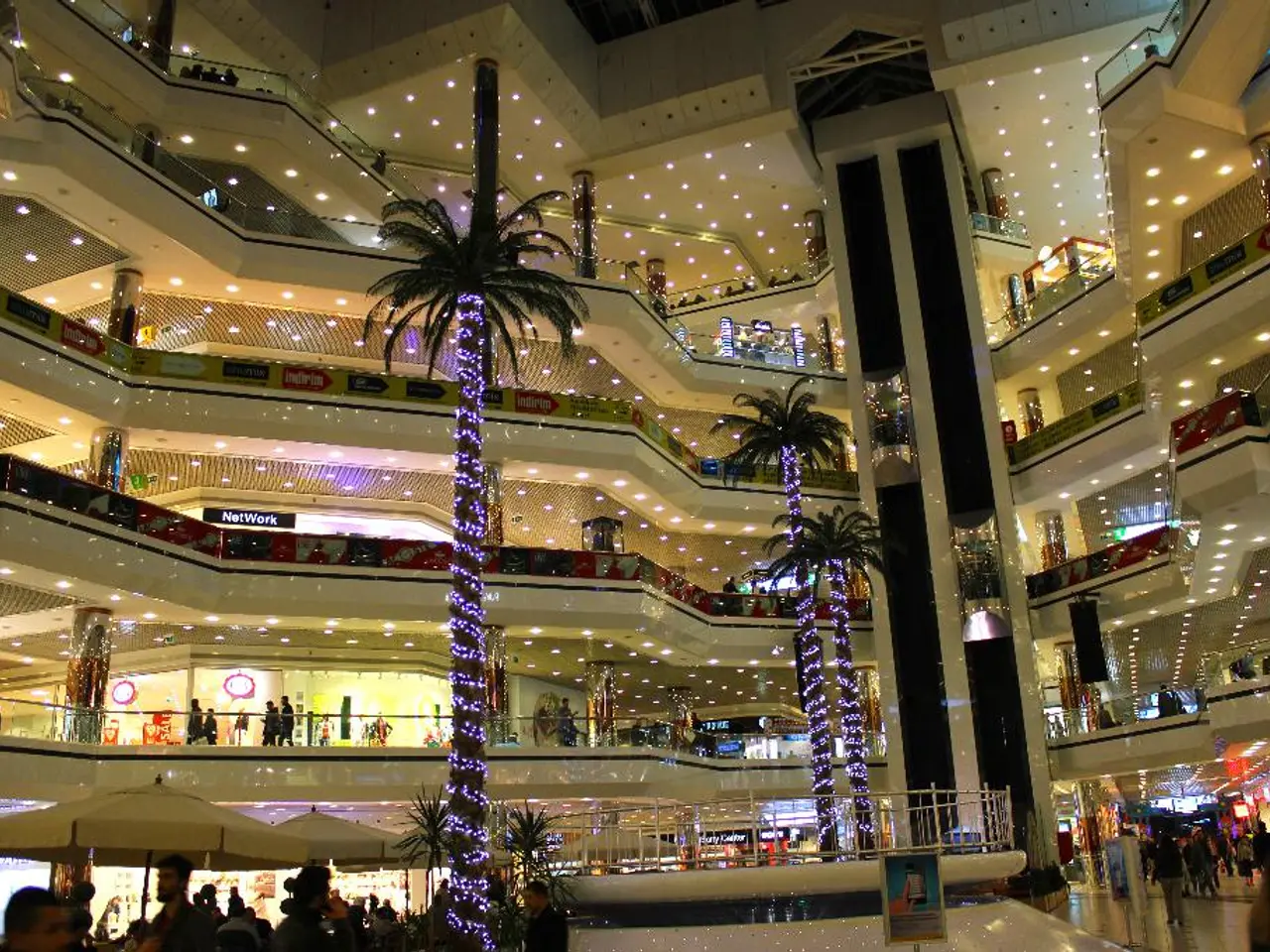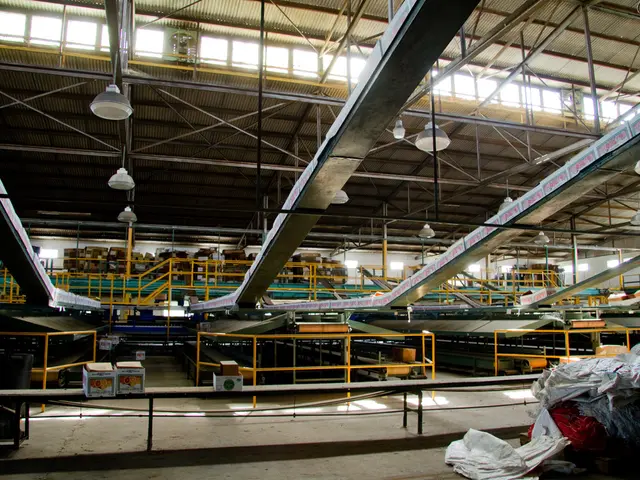Shopping centers' influence on fostering communities and molding urban landscapes
In towns and cities across the UK, shopping centres have emerged as more than just retail hubs. They have become social hubs that strengthen communities and shape urban areas. With approximately 528 shopping centres in the country, these spaces provide significant employment opportunities and contribute significantly to the local economy.
Employment is a key aspect of shopping centres, offering jobs not only in retail but also in areas such as security, facilities management, marketing, and cleaning. For instance, Westfield London, the UK's biggest shopping centre spanning across 150,000m2 with 255 stores, all require local staff.
The existence of shopping centres generates value from the construction supply chain through direct impacts, indirect impacts, and induced impacts. They contribute significantly to the local economy through local income tax contributions, cost savings to the government, inward investment, and additional growth. Cities like Manchester, Birmingham, and Glasgow have opened significant shopping centers in recent years, expanding retail offerings and enhancing social cohesion within their communities.
Shopping centres offer varied, cost-effective, and physical options for social gatherings and family days out. Beyond retail, they often include leisure options such as bars, restaurants, and in some cases, cinemas, bowling lanes, arcades, and mini golf courses. These spaces provide alternatives to online retailers, offering opportunities for social interactions that technology often cannot replicate.
However, it's important to note that excessive use of technology can be disruptive to relationships and prevent the development of vital relationship skills and communication skills. Shopping centres, with their physical environment, provide a space for face-to-face interactions, fostering a sense of community.
Shopping centres also play a critical role in maintaining a healthy, happy community, especially in urban areas. They provide significant employment opportunities, allowing people to afford necessities, and offer opportunities for career exploration. Furthermore, they host various events, often free or cheaper than independent venues, to educate or entertain audiences and attract footfall. These events provide opportunities for consumer data collection, increased centre awareness, social media exposure, and strengthened customer loyalty.
Jade Wilkie, marketing manager of Glasgow-based The Forge Shopping Centre, emphasizes the responsibility of shopping centres to support their neighbourhoods through employment and events. Shopping centres, she says, have a role to play in maintaining the vibrancy of their local communities and contributing to a better standard of living.
In conclusion, shopping centres are not just places to shop. They are social hubs that strengthen communities and shape urban areas, providing employment opportunities, contributing to the local economy, and offering opportunities for social gatherings and family days out. It is important for consumers to consider the role of shopping centres in their communities when making purchases or planning social activities.
Read also:
- Genetically Modified Spiders Debut Worldwide First
- Lawsuits filed by numerous families against Boeing and Honeywell in relation to the fatal Air India crash in June, claiming the lives of 260 individuals.
- Uncovering the Past: The Resurgence of Doca Film Club and Georgia's Long-Lost Era
- Hires David Crane, a former U.S. Department of Energy official, as new CEO for Capital company






